Many Facebook and Instagram users have reported being automatically subscribed to the official accounts of President Donald Trump and Vice President JD Vance after their inauguration.
The confusion began when users noticed posts from the @POTUS and @VP accounts in their feeds, including Trump’s “promises made, promises kept” post and a photo of Vance swearing in Marco Rubio as Secretary of State.
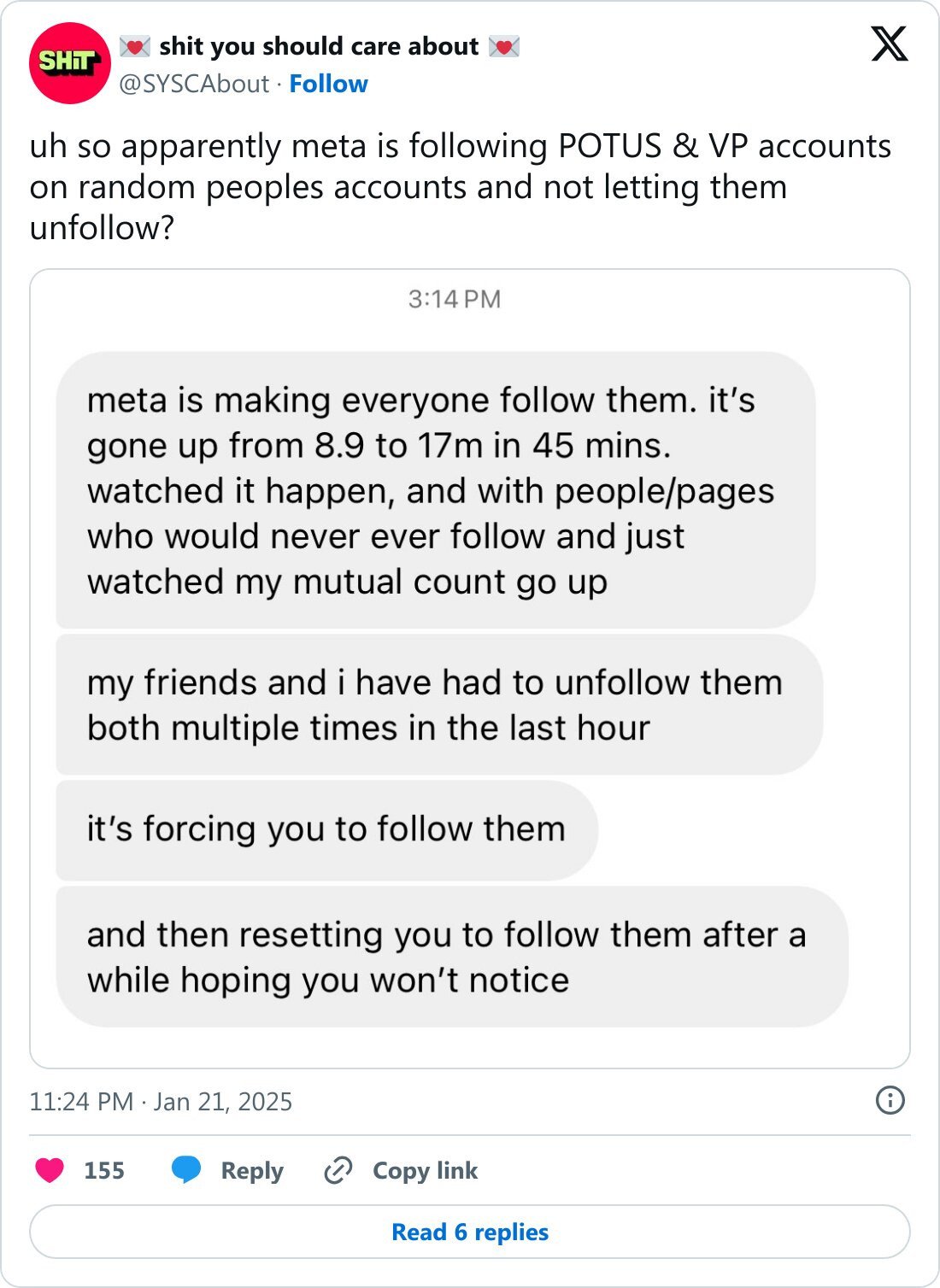
Some users claimed they had never followed the accounts in the first place, while others reported unfollowing them, only to be mysteriously subscribed again.
Andy Stone, Meta’s Communications Director, addressed these concerns, explaining that the @POTUS and @WhiteHouse accounts transition to the incoming administration during a change in government. “The http://Facebook.com/POTUS and http://Facebook.com/WhiteHouse accounts are managed by the White House and they change when the occupant of the White House changes,” Stone clarified.
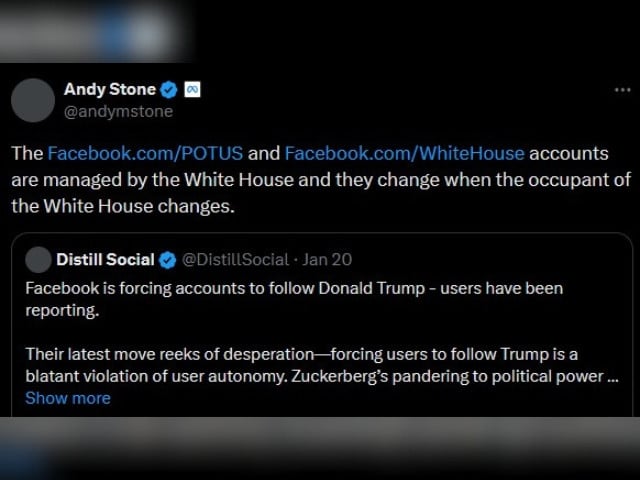
However, users were sceptical, pointing out that they had received notifications about following not only the official administration accounts but also the personal accounts of Trump, Vance, and even Melania Trump.
Some believe these automatic changes reflect an increasingly monitored digital space, particularly in the wake of controversies like the TikTok ban and mounting scrutiny of social media platforms.
Pop star Demi Lovato also voiced her concerns, taking to Instagram Stories to call out Meta. Lovato claimed she had unfollowed JD Vance multiple times, only to find her account refollowing him.
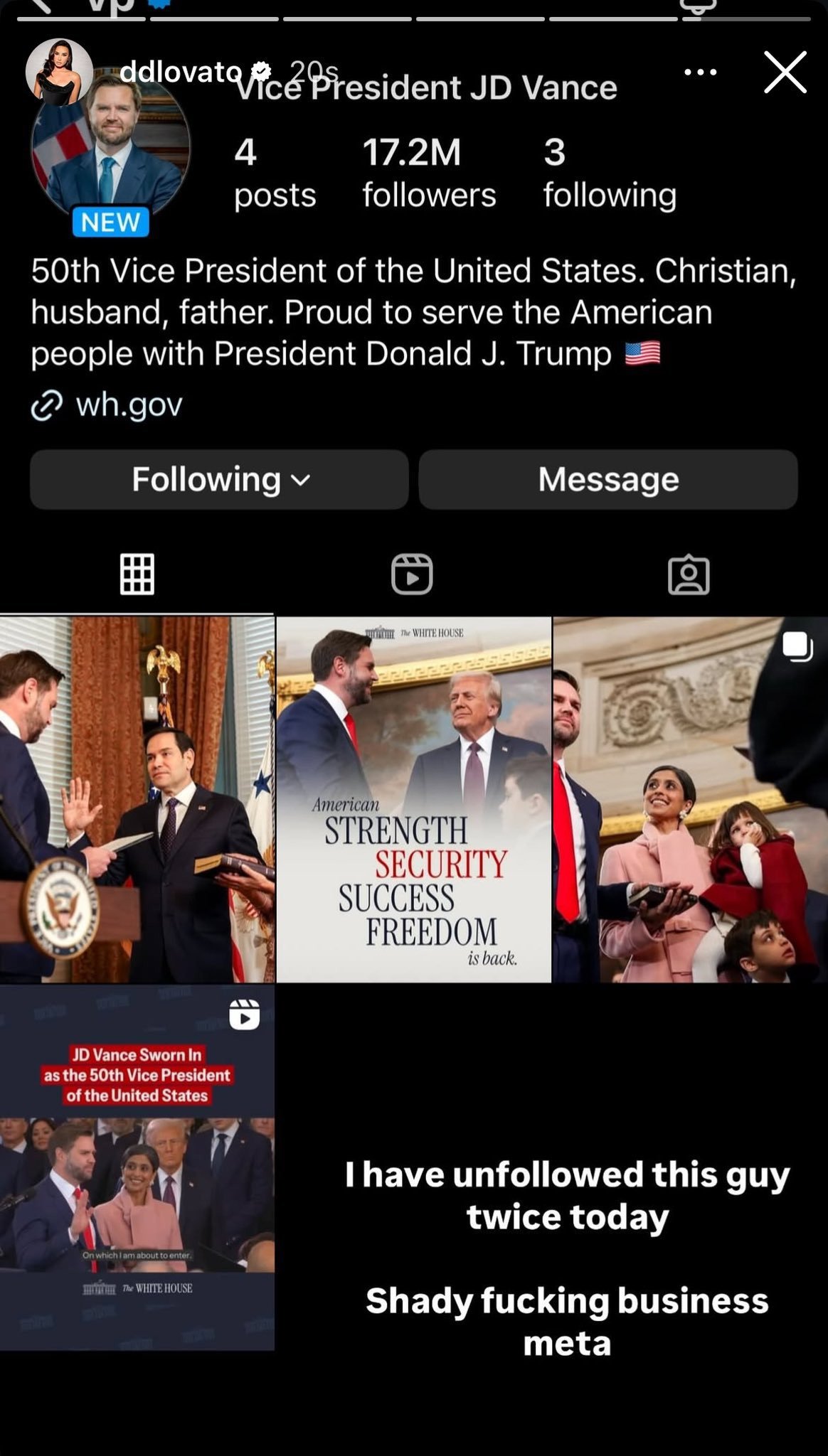
The backlash coincides with a series of policy changes at Meta, which critics argue signal a shift toward right-leaning perspectives. CEO Mark Zuckerberg recently announced the end of Meta’s fact-checking programme, replacing it with a user-driven system similar to X’s Community Notes.
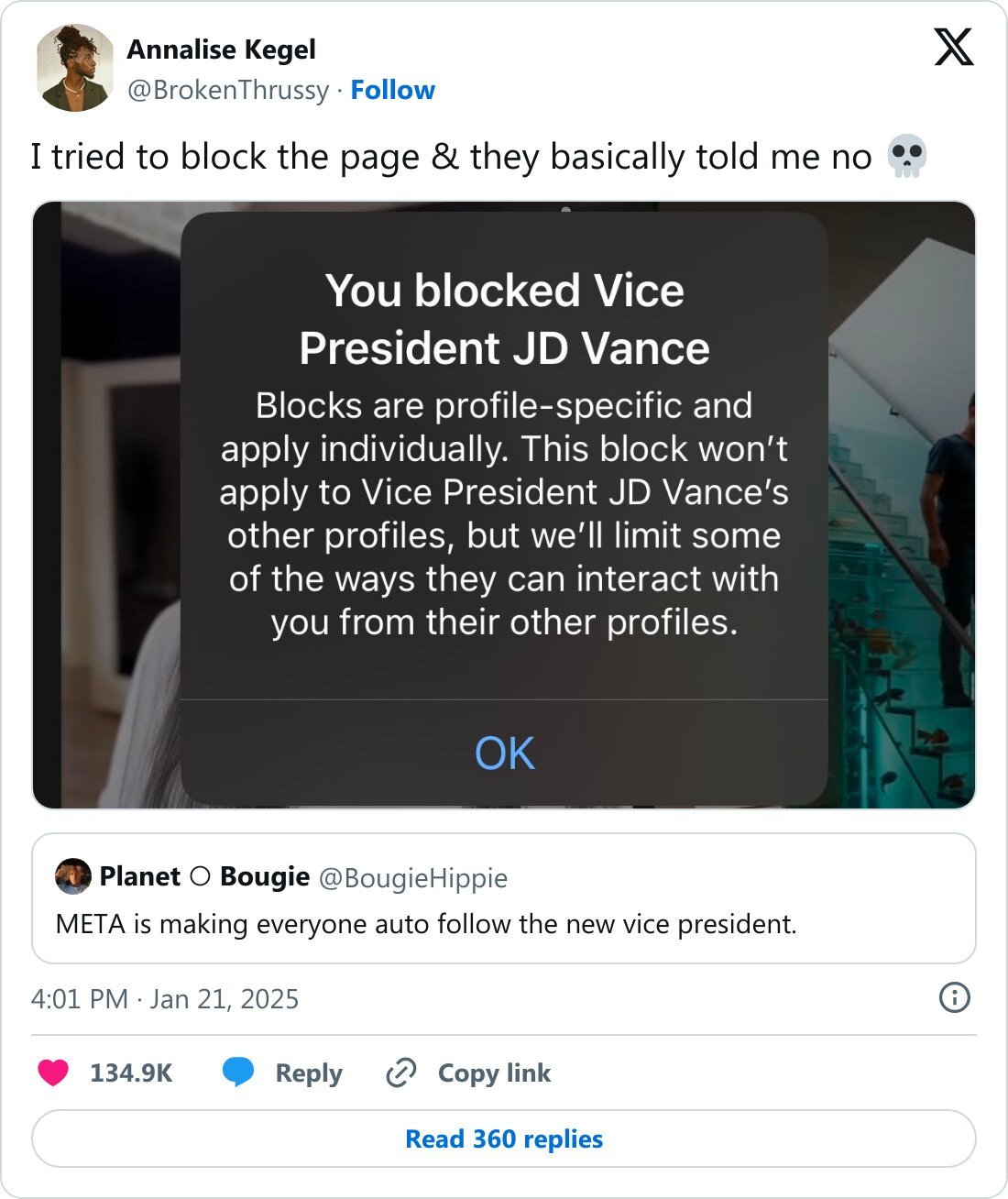
Zuckerberg justified the change by saying the previous system was “too politically biased.”
Additionally, Meta has faced criticism for altering its diversity initiatives, including disbanding its Diversity, Equity, and Inclusion team and ending its "diverse slate approach" to hiring.
The company also updated its "hateful conduct" policy to allow posts describing LGBTQ+ individuals as mentally ill, which Zuckerberg defended as part of simplifying content guidelines.
Another issue fuelling user distrust was the temporary hiding of search results for #democrat on Instagram. Users were met with messages claiming the hashtag’s results contained “sensitive content.” Stone addressed this, stating that the issue affected multiple hashtags across the platform, not just those related to the Democratic Party. “We’re working quickly to resolve this,” he said, without providing further details.
These incidents have heightened concerns about digital platforms being openly monitored or manipulated. Many users feel uneasy about the level of control Meta appears to exert over their digital experiences. In the wake of controversies like the TikTok ban, which highlighted government scrutiny of social media, some fear their online activities are becoming increasingly restricted or politically influenced.
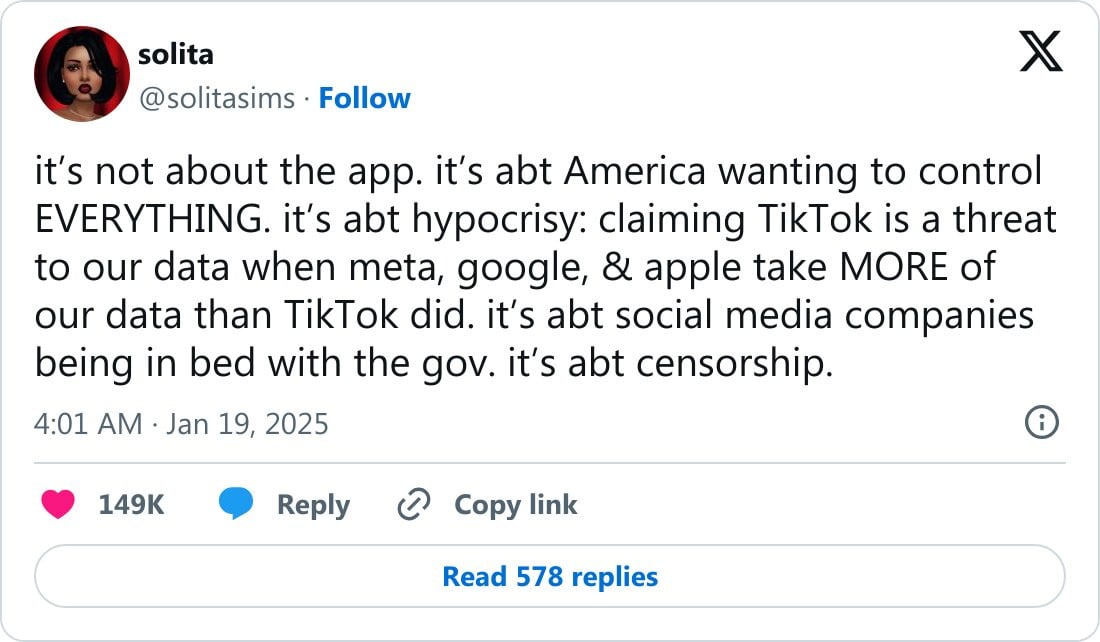
Some users have been facing the very same issue with the FLOTUS Facebook page, claiming they never followed it in the first page but are now following Melania Trump.
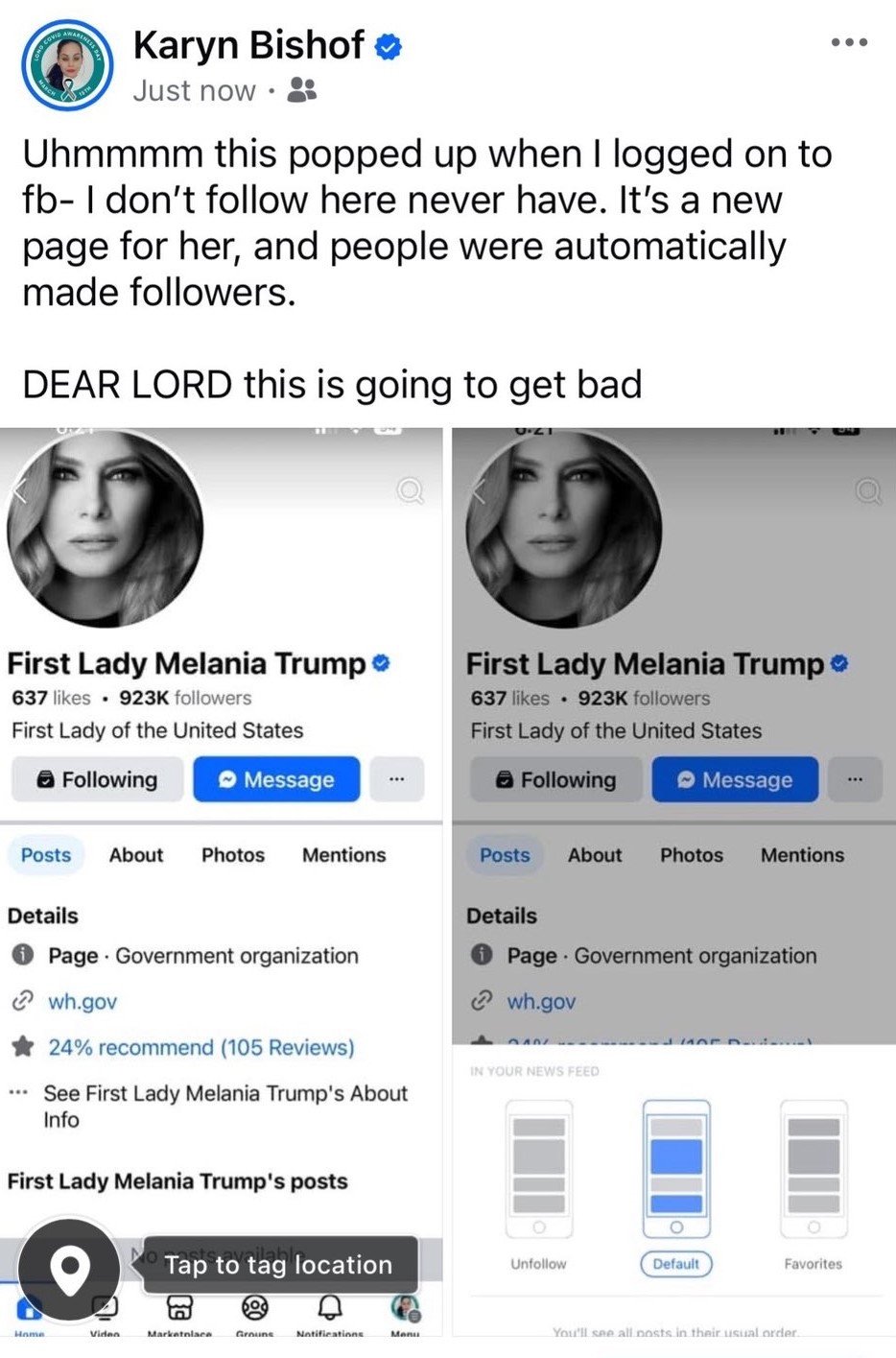
Zuckerberg, who donated $1 million to Trump’s inauguration fund, attended the president’s inauguration on Monday alongside other tech billionaires.
Critics argue that these policy changes reflect Meta’s alignment with the current administration, though the company insists these actions are procedural.
The controversy surrounding Meta’s policies and practices during the transition of power has raised significant questions about transparency, bias, and user autonomy on digital platforms.
While Meta continues to defend its decisions as standard procedure, the backlash highlights growing public scepticism of social media giants and their influence over online spaces.


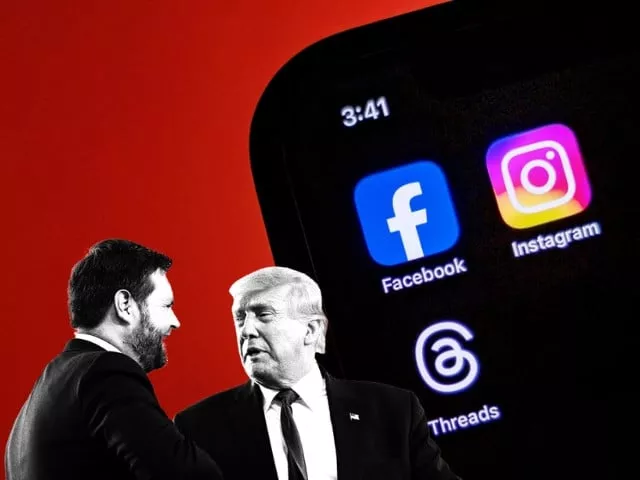






COMMENTS
Comments are moderated and generally will be posted if they are on-topic and not abusive.
For more information, please see our Comments FAQ